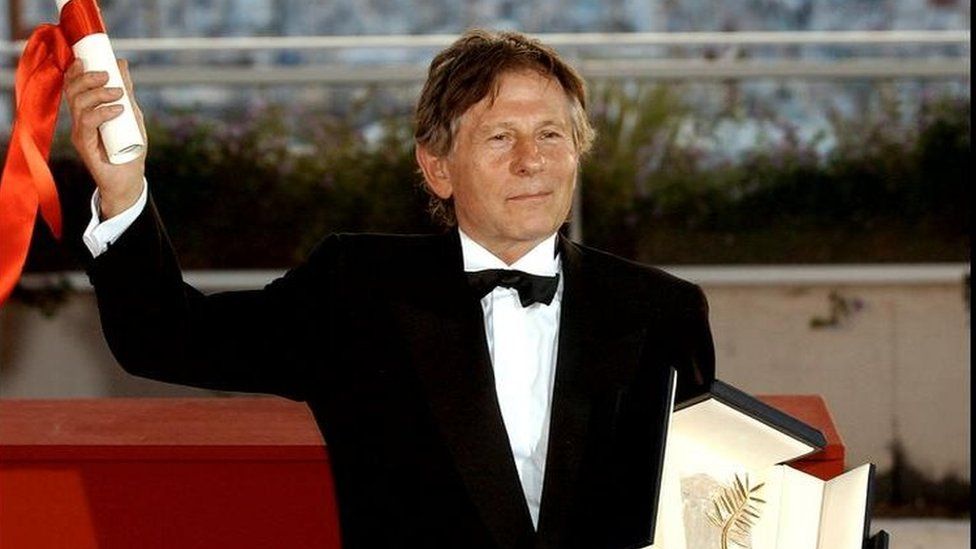The slow-burning Polanski saga
- Published

The unlawful sex case against film director Roman Polanski has been rumbling on for almost 40 years.
A Polish court's decision to deny a US request for the French and Polish citizen's extradition is just the latest chapter in the saga.
The incident that sparked the long battle took place in 1977, when Polanski had unlawful sex with 13-year-old Samantha Gailey at actor Jack Nicholson's Hollywood home.
The film-maker was arrested and charged with a string of offences, eventually admitting to having sex with a minor. The other charges were dropped as part of a plea bargain.
He spent 42 days undergoing psychiatric evaluation in prison, but was permitted to travel overseas when this was completed.
Exile begins
Polanski's lawyers have said that private conversations with the judge led them to believe that the prison time would serve as his punishment.
However, when it was later suggested that he could return to prison, Polanski decided to flee ahead of sentencing.
In February 1978 he travelled to the UK where he had a home, and then went to France where he held citizenship.
US attempts to have him returned from France were thwarted, and Polanski's prolonged period of exile from Hollywood began.
He also avoided the UK, with its stronger extradition agreement with the US, and preferred not to travel to countries where there was any danger of arrest.
This quiet yet unresolved state of affairs continued until the release of Polanski's 2002 film The Pianist, a harrowing story of Nazi-occupied Warsaw which mirrored his own childhood experiences.
'Creepy'
Polanski won the Oscar for best director, and his no-show at the Hollywood awards in 2003 seemed to lead to a new rash of developments in the case.
As The Pianist was raking in box office rewards, a Los Angeles judge made documents from the original case available to the public. These were subsequently posted on the internet.
Samantha Gailey - later Geimer - spoke out at the time, saying that Polanski should be allowed to return to the US and "should have received a sentence of time served 25 years ago".
Ms Geimer, now a mother of three, reflected on her experiences, saying it was "scary, and looking back, very creepy".
She maintained that her liaison with Polanski had not been consensual, and he would "not take no for an answer".
Timeline
1977: Polanski admits unlawful sex with Samantha Geimer, 13, in Los Angeles
1978: Flees to Britain before US sentencing, and then to France, where he holds citizenship and is protected by France's limited extradition with US
2009: The US rejects Polanski's request for the case to be dismissed. Visiting Switzerland later that year, he is jailed, then placed under house arrest following a US extradition request
2010: Swiss authorities decide against extraditing Polanski and free him
2014: Polanski is questioned by prosecutors in Poland, acting on a US request. He agrees to comply with the Polish justice system as it examines the matter
2015: Polish court rules against US request for extradition.
In 2005, a libel action brought by the film-maker against Vanity Fair magazine concerning allegations about his earlier private life went in his favour.
But his refusal to testify in person at London's High Court showed that he still considered himself at risk.
In 2008, a new HBO documentary entitled Roman Polanski: Wanted and Desired was released, which examined the events leading up to the film-maker's sudden flight from the US, keeping the case under public scrutiny.
In 2009, a flurry of legal activity failed to put an end to the case and US determination to extradite Polanski.
His lawyers' attempts to lift the threat of extradition fell on deaf ears, including a bid to hold a court hearing outside the US.
Ms Geimer also called for the case to finally be dismissed, saying it "causes harm to me, my husband and children".
But during a visit to Switzerland in 2009, Polanski was arrested at Zurich airport. He was held in prison and under house arrest for months but avoided extradition after Swiss authorities ruled against it.
In a 2011 TV interview, Polanski said he had "regretted" the 1977 incident for 33 years and called Ms Geimer a "double victim" - of both him and the press.
But Polanski's legal troubles may not end here. The Polish ruling can be appealed against and officials from the recently elected Law and Justice Party have publicly called for his extradition.
- Published30 October 2015
- Published3 October 2011
- Published17 September 2013
- Published28 September 2009
- Published12 July 2010